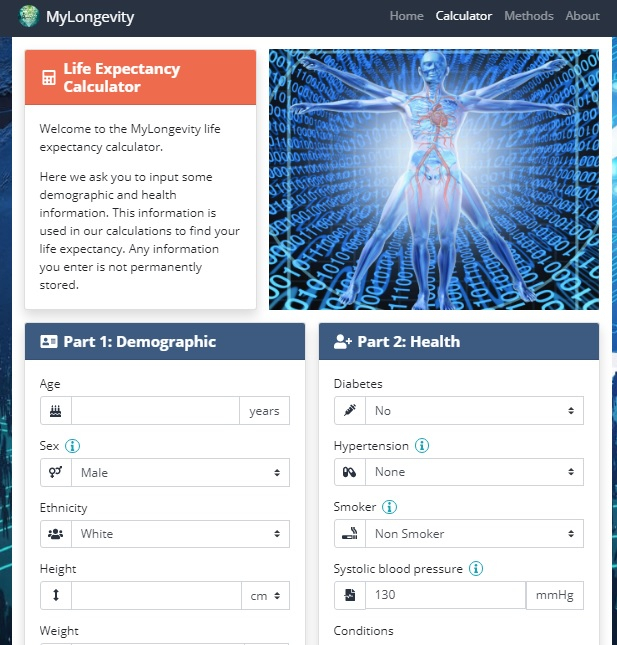Many people do not want to find out the date when they will die, but some people do like to know how much time they have and what they can do to have more time to achieve what they desire the most in their lifetime.
Thinking about those people who like to know about their life expectancy, researchers at the University of East Anglia have developed an app, called My Longevity. It says, "Here we ask you to input some demographic and health information. This information is used in our calculations to find your life expectancy. Any information you enter is not permanently stored."
In the app, people need to provide information under the demographic and health section—including age, height, weight, smoking habits, ethnicity, blood pressure, and details about other health conditions. Once all these sections are filled, they need to click on "Calculate Life Expectancy" to find out their life expectancy. But the question here is—how much trust should we place in these predictions?

Longevity
Life expectancy is on average how long members of any given population can expect to live, while lifespan is the maximum length of time any member of the species can survive. Although the life span has changed very little, the global life expectancy has soared by over 40 years since the beginning of the 20th century—it was achieved because of the development in science and public health. As reported earlier, in the U.K. life expectancy at birth is now more than 80 years.
The fact which all we should understand is the life expectancy depends on a lot of things, including where people grow up and live or what gender you are—as on average females live longer than males.
To get a more accurate prediction, the team of researchers at the University of East Anglia developed the app based on several factors that affect the life expectancy—controlled and uncontrolled high blood pressure, the presence of a related illness such as rheumatoid arthritis, cardiovascular disease or serious risk factors like high cholesterol.

The researchers hope that access to its calculator will encourage users to adopt a healthier lifestyle—including healthy habits, food, and changes in their current lifestyle. As per a study, scientists explored the relative effectiveness in inducing healthy behavior change of different communication strategies about the benefits of an intervention that reduces the mortality risks of cardiovascular disease and encourages respondents to embrace healthier lifestyles.
Motivation to change an unhealthy lifestyle plays a great role in many people who want to change their unpleasant habits to live a healthy life. Another fact is the more developers of these apps recognize that users will only adopt or change certain behaviors, the more useful these apps will be in the future.









